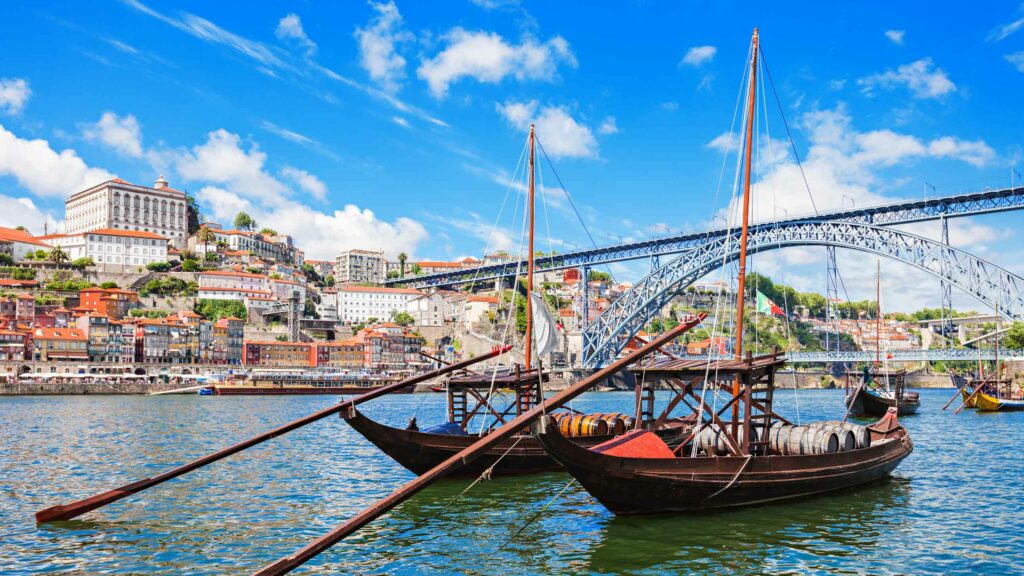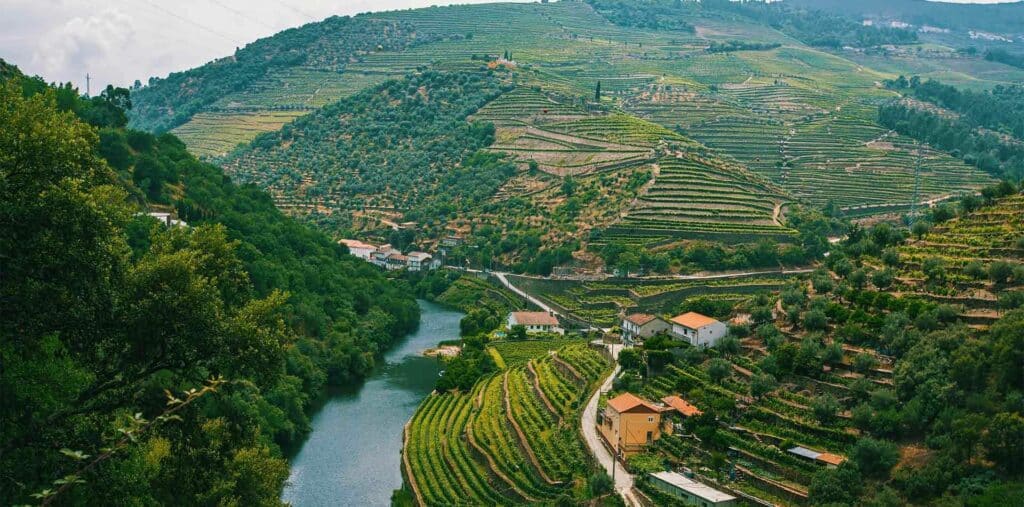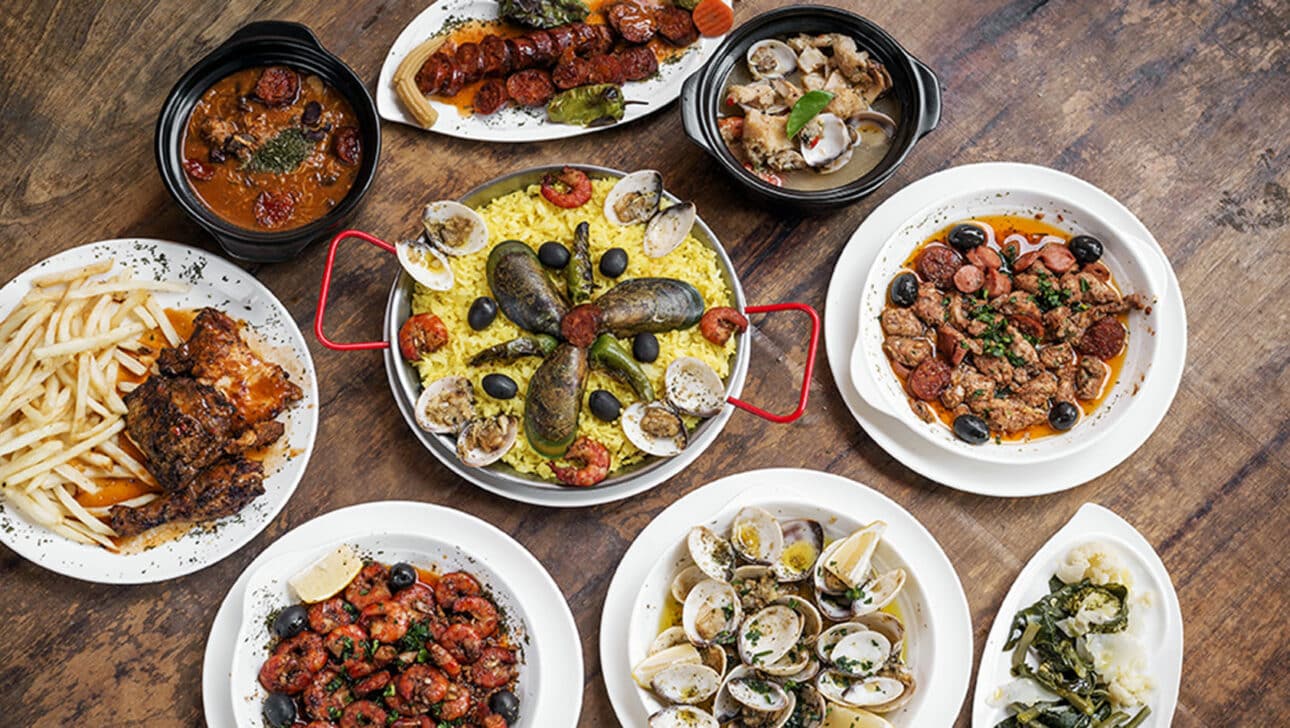If you’re heading to Portugal, be prepared to eat, and eat well. Spain’s neighbor is moving out from under that country’s culinary shadow and is rapidly becoming a favorite of globe-trotting foodies. Portuguese cuisine reflects its dominant coastline—seafood is front and center, and fish pulled from Portugal’s Atlantic waters are considered to be among the best in the world. And while you might not be familiar with Portuguese, Portugal’s seafaring past has influenced the cooking of Africa, South America, and even Asia! (The technique of making tempura, for example, is believed to have been introduced to Japan by Portuguese seafaring merchants and missionaries.) Here’s a look at what makes Portuguese food so unique.
Portuguese Seafood: Fresh…
Cutting into a tuna steak that came out of the sea a few hours ago is something that Portuguese locals take for granted—and often insist upon. Fresh fish, from tiny sardines to massive yellowfin tuna, is a favorite here. If it lives in the sea, chances are the Portuguese have found a way to eat it. Squid, octopus, clams, mussels, oysters, crab—all can be found on Portuguese menus. In fact, the Portuguese are the world’s third largest consumers of seafood, behind Japan and Iceland.

…And Salted.
Cod is king here, but it’s not like the breaded and fried version (served with fries, of course) most of us tend to order. The Portuguese love bacalhau, which has a double meaning: it’s the Portuguese word for cod, and it’s also what the Portuguese call their salted and dried version of the fish. The Portuguese say there are 365 ways to prepare bacalhau—one for each day of the year—and depending on whom you ask, there are dozens, even hundreds more bacalhau recipes than that. Salt cod might not be high on your list of things to eat, but no trip to Portugal is complete without giving it a try. And with all of those ways to serve it, there’s gotta be one you’ll like!
Portugal? More Like PORK-tugal.
Almost as popular as seafood is pork, or ham, or really, any part of the pig. Presunto is a cured ham made from semi-wild roaming black pigs. Whole-roasted suckling pigs are a mainstay in small towns and villages across the country; leitão da bairrada or leitão assado is a popular method of preparation, in which the suckling pig is slathered in a paste of garlic, black pepper, olive oil and butter then spit-roasted. The Portuguese aren’t shy about using the whole hog: the signature dish of Porto is tripas à moda do Porto, a stew made with pig’s ears, along with calves’ feet, tripe and beans.
Speaking of Portuguese Stews…
If Portugal has a national dish, it would be cozido. It’s a one-pot boiled feast that’s often served as the mid-day meal when families are gathered together. The components of cozido will vary from region to region, but there are some constants: cabbage, root vegetables such as turnips and carrots, potatoes and various forms of Portuguese sausage, from chouriço (the Portuguese version of Spain’s chorizo) to blood pudding. Proteins can include chicken, beef and pork. The method of cooking cozido on the island of São Miguel in the Azores is truly unique: big sealed pots of cozido are placed in a hot spring heated by the local volcano, where they slow-cook for several hours.

And Of Course, The Port.
A Portuguese meal wouldn’t be complete without a bit of the country’s famed namesake, port wine. Authentic “Porto” is made from grapes grown in the Douro Valley, and it’s most often served after a meal—try it with Portugal’s São Jorge strong cow’s milk cheese. But you don’t have to save your Port for dessert. Tawny and even white Ports are often served as an aperitif.
We’ve only scratched the surface of Portuguese food here—for example, Portugal is Europe’s largest consumer of rice, so you’ll find dozens of fantastic rice-based dishes. And for the really adventurous eater, Portugal offers foods that at first glance look like a dare, but are beloved by the locals. (Roasted pig’s head, anyone? How about a fresh lamprey?) Whatever your tastes, you’ll find lots to love on a Portuguese menu. Bom apetite!
A little about the author:
Jason Avant is a freelance writer based in Carlsbad, California. An avid surfer, hiker, and backpacker, his outdoor passions fuel his love of adventure travel. He’s traveled extensively across the U.S., including three years spent in Alaska; he’s also journeyed through Mexico, Costa Rica, France, and Italy.




